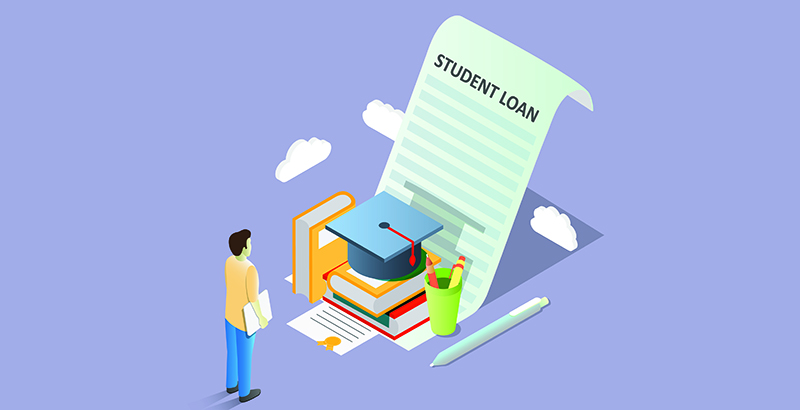Blatz: Biden Must Make Student Loan Forgiveness a Priority — Not Just for Graduates, But for the Economy and for Long-Term Fairness

There is a lot of talk about student loan debt forgiveness right now, but this is actually less about canceling debt and more about investing in workers and the economy while developing sustainable solutions to underlying, systemic problems. Education is a fundamental driver of economic development because it is all about investing in people, and people not only make up a skilled and competitive workforce, they are creators and innovators — the growth engine of our economy.
It is an investment because student loan borrowers could use forgiven debt to help stimulate the economy through saving and investing rather than devoting more discretionary income into repaying those loans. A 2018 study from the Levy Economic Institute of Bard College using 2016 data showed that a one-time cancellation of $1.4 trillion in outstanding student loan debt would translate to an increase of up to $108 billion per year in the gross domestic product. Additionally, studies show that funding education leads to quantifiable national benefits such as higher salaries, improved health, increased volunteerism and reduced reliance on welfare and other social support programs.
If the Biden-Harris administration is serious about addressing serious threats to our nation’s economic viability and narrowing the racial wealth gap, reducing student loan debt should be one of their tools for doing so, because its impact is immediate and measurable.
A Brookings report states that this would help narrow the racial wealth gap, since Black students owe $7,400 more on average than their white peers after graduating — while earning less. Black students hold almost twice as much debt four years after graduation than their white peers. Loan forgiveness could address these racial inequities, which are getting even wider because of the pandemic.
The economic fallout from COVID-19 is making it difficult for one out of every four adults to pay their bills, according to a Pew Research survey. With so many people struggling, the stakes are high.
Given that student loans are the most significant debt Americans have, and considering the economic crisis we are facing right now, the Biden-Harris administration must prioritize this as a critical education and economic issue. The policy could be enacted through income-driven plans to lower monthly repayments, a partial cancellation of student loans, as proposed by Democrats, or a much-needed reform to the public service loan forgiveness program that denies 99 percent of applications. In addition, the administration could take a preventative approach by investing in free and/or reduced tuition programs to public colleges and universities.
Politicized debates frame student loan forgiveness as a partisan issue — that it is unfair to those who have paid off their student loans; that those who never borrowed or did not attend college don’t benefit in the same way; and that those whose debts are forgiven are avoiding personal responsibility. But resentment-thinking stifles progress. We don’t always benefit directly from everything government does. Taxes help fund education for the greater good because we all indirectly benefit by having a robust economy, better health and a thriving culture, in the same way that funding infrastructure allows us to have safe roads, clean water and help from the fire department, when needed.
Besides, it is hypocritical to complain about student debt while favoring other types of financial help, such as tax breaks for the wealthiest members of society.
Finally, student debt forgiveness, while providing stability to families and the economy in this immediate crisis, would give us an opportunity to step back and address the systems that have brought us to the moment of desperation. It is important to take a holistic view of racial and economic disparities — for example, inequities in postgraduate opportunities and employment. Cancellation of student loan debt would help the nation reset, to seek more sustainable solutions.
The time for talking about student loan forgiveness is over. It is time to take action.
Jennifer Blatz is the president and CEO of StriveTogether, a national nonprofit working in nearly 70 communities across the United States to enable more than 12 million young people to succeed in school and life. For two decades, she has designed, developed and implemented strategies that drive large-scale community improvement through partnership with local leaders and organizations.
Get stories like these delivered straight to your inbox. Sign up for The 74 Newsletter

;)